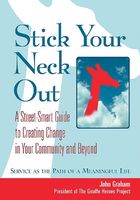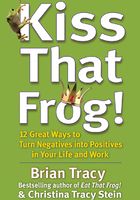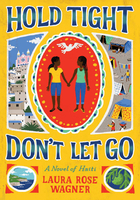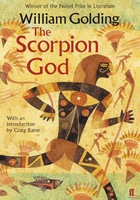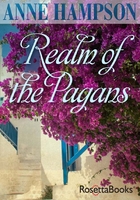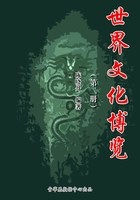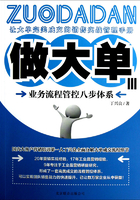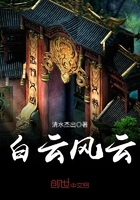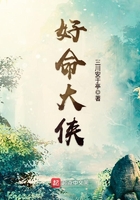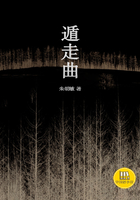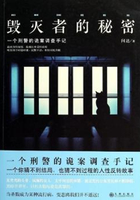by John Carey
Golding always thought The Inheritors his best novel, and many critics agree. He wrote it very fast at a time when his career was taking off after years of rejection. In February 1954 Faber and Faber had at last agreed to publish Lord of the Flies (it came out on 17 September), and his editor, Charles Monteith, was eager to know what the next book would be. On 17 October Golding replied that he had written 'nearly a quarter' of a new novel. It was 'about H. Sapiens and H. Neanderthal', and he was getting on 'at a tremendous lick'.
Coming after a novel about schoolboys on a desert island, this new subject has been seen, and was seen by Monteith, as wildly erratic. But there are links between the two books. Both are about an encounter between civilization and savagery, and both suggest new ways of interpreting those terms. Both recount the killing of the innocent. The boys who turn savage in Lord of the Flies reflected Golding's interest in original sin and the fall, so it might seem natural for his next novel to enquire when the fall happened. Speaking to some Indian students many years later, he explained that his Neanderthals ('the people' in the novel) are unfallen because, unlike the 'new people' (Homo sapiens), they cannot think, they can only imagine: 'The Fall is thought'.
A note at the end of the manuscript records triumphantly, 'First draft finished 1315 on the 11th November in 29 days.' November the 11th was a Thursday in 1954, and the time – a quarter past one – reminds us that Golding wrote this and each of his first four novels during lunch hours, breaks and holidays while earning his living as a teacher at Bishop Wordsworth's School in Salisbury. The first draft is written in a green, hardcover Bishop Wordsworth's School exercise book using schoolmasterly red biro.
As often, Golding's wife Ann helped, or at least advised. Insertions in the manuscript read, 'Ann thinks Lok's fall too mysterious. People won't get it. I don't say clearly that Lok smelt what the old woman carried,' and, 'Ann says Fa should say "We are lucky by the sea. We can drink out of shells there."' This rather gives the lie to the letter Golding wrote on 31 November, explaining that he could not send Monteith the manuscript because his handwriting was illegible 'even to my wife'. Clearly he wanted time to rethink before submitting The Inheritors to Monteith's scrutiny. He promised to type it out over Christmas and send it then. 'I've learnt to compose at the typewriter, which is a help,' he added.
It was a help. He rewrote extensively as he typed, and the many differences between manuscript and typescript change the meaning of The Inheritors. At the end of the manuscript he had noted down things he needed to keep in mind for the rewrite. The first is that: 'The new people must be forced by circumstances and their own natures to destroy the people. Therefore the people must live on the only line of advance … They must come from somewhere (the sea?) and be going to somewhere.' In the rewrite the new people do come from the sea – Lok smells salt on their canoe – and they are going to the hunting grounds beyond the mountains.
The landscape in the rewrite would, Golding noted, have to be adjusted to fit this new idea: 'I begin to think of a great waterfall at the mouth of a gorge. Beyond the gorge a bit of river then a vast lake, surrounded by forest and plain.' The geography worried him, and he added a note: 'I must ask Jameson about a waterfall out of a gorge. Could the land beyond be a great crater? Against this, it would not be southern England.' John Jameson was the geography master at Bishop Wordsworth's, and Golding's consultation was evidently satisfactory. In the rewrite the waterfall does issue from a gorge, and upstream the river widens into a lake. Golding had based his description of the forest on memories of Savernake Forest near Marlborough, where his parents took him for walks as a child – hence his need to check that the geography was compatible with prehistoric southern England.
The waterfall, he notes at the end of the manuscript, is vital: 'The centre symbol is the waterfall, the time stream, the fall, the second law of thermodynamics. It must be vivid.' This ties in with what he told the Canadian critic Virginia Tiger – that he wrote the first draft as a rebuttal of the nineteenth-century doctrine of progress but, in the rewrite, stressed, on the contrary, the evolutionary life-force which drives the new people upwards 'at a higher level of energy' than the Neanderthals possess. This is symbolized by their ability to haul their canoes up past the waterfall and sail upriver against the current. Golding's reference to the second law of thermodynamics is clarified by a passage from his essay on Yeats.
The Satan of our cosmology is the Second Law of Thermodynamics which implies that everything is running down and will finally stop like an unwound clock. Life is in some sense a local contradiction of this law … we should be cheered when life refuses to submit to a general levelling down of energy and simply winds itself up again.
Water passing over the fall from a state of high to a state of low organization is an illustration of the second law. But the new people, defying the current, and pushed on by 'a new intensity, new vision', are a local contradiction of it. It is almost as if the first version of The Inheritors was written by the religious Golding, who mourns the destruction of innocent Neanderthals, and the revisions by his scientist father, who, as a keen believer in Darwinian evolution, might be expected to side with the intellectually superior new people.
Golding sent the typescript to Monteith on 15 February 1955, hedged with apologies. It was 'nowhere near final – hardly begun in fact'. Monteith should regard it as just 'a roughly shaped bit of marble or gritstone or putty', and if he could bear to 'skip through' it his criticisms would be of 'enormous value'. These disclaimers may seem overdone. But they reflect Golding's habitual nervousness about writing. In reply Monteith assured him that he was delighted with The Inheritors: it should be published as it stood.
His immediate reaction was anxiety, and he wrote by return to say he was 'a bit startled to find The Inheritors is finished'. What, he wondered, would an expert think of his depiction of Neanderthals? 'I haven't done any research for the book at all,' he warned, 'just brooded over what I know myself.' Should not some 'palaeontologist, anthropologist, archaeologist, hard-headed scientist' be consulted before publication? Monteith replied firmly that the book did not need an expert. 'If he had any suggestions to make they would be the wrong sort of suggestions.'
That was wise advice, given Golding's fragile self-confidence. But he was less ignorant than he made out. He had been fascinated by archaeology since childhood, had run the school archaeological society, and been on local digs. The landscape around Salisbury is rich in prehistory, and he recalls in an essay how he used to imagine coming face to face with a Neanderthal on his country walks. The speed with which he wrote the novel suggests a subject long pondered. What Neanderthals were really like was (and still is) disputed, but he was aware of the contending theories. He told Monteith that he had always found H. G. Wells's belief that they were gorilla-like monsters with cannibalistic tendencies 'uproariously funny', and he used Wells's statement derisively as the epigraph to his novel.
His own depiction of Neanderthal man and Homo sapiens reflects, to an extent, the archaeological evidence. His Neanderthals have no artefacts or containers, whereas the new people have necklaces, paintings, wine-skins and clay pots. Inventing containers (bags, baskets) was an important evolutionary step, since it allowed hunter-gatherers to bring back and store foodstuffs. Fa, the brightest Neanderthal, almost hits on the idea of containers when, watching the old woman cook broth in a deer's stomach and dip a stick in it to get it to Mal's mouth, she has an image of sea shells full of water. This was the incident Ann thought should be clarified, though Golding did not adopt her suggestion. Fa almost invents agriculture, too, when she imagines food growing on the terrace.
Neanderthals were hunter-gatherers, but Golding's are different. They gather the fruits of the forest but, because they have a sense that killing is 'wickedness', they depend for meat on what they can guiltily scavenge from kills made by big carnivores. Their language, which incorporates gesture, dance and a kind of telepathy, is another of Golding's innovations – among palaeontologists there is no general agreement that Neanderthals could speak. The new people practise shamanism, and their shaman, Marlan, is male, but Golding gives his Neanderthals a religion (the worship of a matriarchal goddess, Oa), and this was his widest divergence from received opinion. As he would have known, no traces of Neanderthal religion have been found; nor have any Neanderthal grave goods that would imply a belief in an afterlife. He gets round these possible objections by making his Neanderthals worship 'ice women', and place meat and water in the grave for the afterlife, none of which would leave any remnants for archaeologists to discover.
The admiration, almost love, that his Neanderthals feel for the new people may be his own idea, or he may have known there was archaeological evidence to support it. In Western Europe Neanderthals and Homo sapiens lived side by side for thousands of years, sometimes sharing the same sites, and there are indications that the Neanderthals imitated aspects of human culture, such as wearing ochre body paint, which has been taken to imply admiration.
The new people in the novel carry off a Neanderthal baby, giving hope that some vestige of the Neanderthals may survive in us. This was Golding's guess, but recent research supports it. In 2010 sequencing of the Neanderthal genome at Germany's Max Planck Institute revealed that up to 4 per cent of human DNA comes from Neanderthals, indicating a degree of cross-breeding between the two species.
The greatness of The Inheritors does not depend, however, on Golding imagining what Neanderthals might have been like. It depends on the language he fashions to express it. He accepts the colossal stylistic challenge of seeing everything from a Neanderthal point of view. By feats of language that are at first bewildering he takes us inside a being whose senses, especially smell and hearing, are acute, but who cannot connect sensations into a train of thought. This is a being whose awareness is a stream of metaphors and for whom everything is alive. Intricate verbal manoeuvres force us to share the adventures – and the pathos and the tragedy – of a consciousness that is fearless, harmless, loving, minutely observant and incapable of understanding anything. Though in prose, Golding's achievement is profoundly poetic, exemplifying T. S. Eliot's observation that the modern poet must become indirect 'in order to force, to dislocate if necessary, language into his meaning'.
The Inheritors was published on 16 September 1955, and reviewers instantly recognized its imaginative power and its originality. For Arthur Koestler it was 'an earthquake in the petrified forests of the English novel'. Half a century later, and however many times you have read it, it is still alarming, eye-opening, desolating, mind-invading and unique.

